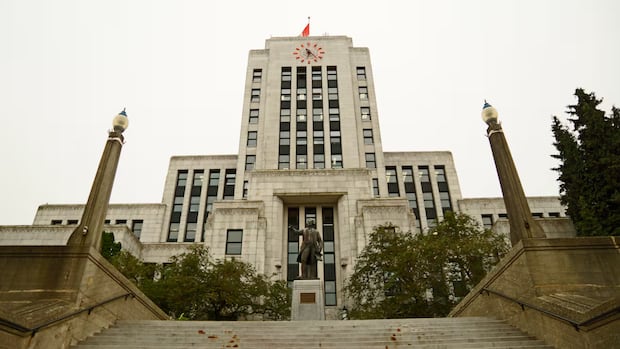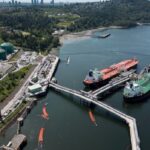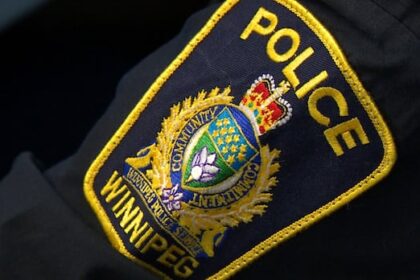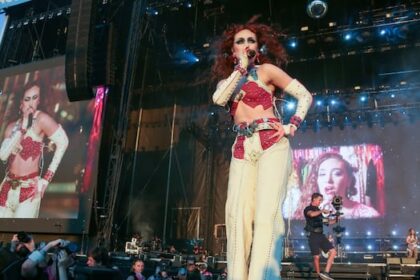British ColumbiaVancouver Mayor Ken Sim’s wish of a “zero means zero” budget has come true. Budget includes additional $50 million for police, but cuts to arts, culture and sustainability departmentsJustin McElroy · CBC News · Posted: Nov 25, 2025 5:37 PM EST | Last Updated: 1 hour agoListen to this articleEstimated 5 minutesThe audio version of this article is generated by text-to-speech, a technology based on artificial intelligence.Vancouver Mayor Ken Sim is pictured in city hall council chambers during debate on the city’s 2026 budget. (Ben Nelms/CBC)The City of Vancouver has passed a 2026 budget with a freeze on municipal property taxes, $50 million more for the city’s police department, and a host of cuts to a number of other departments.“Zero means zero, and this council is committed to doing our part to keep life manageable for residents and businesses,” said Mayor Ken Sim at the conclusion of a council debate that saw a series of minor amendments, but no major changes from the draft budget unveiled three weeks ago.“Vancouver is showing real momentum: our streets are safer … and the challenges that have impacted the city for decades are finally being able to be addressed.”The $2.4 billion budget garnered significant attention, with both Sim and opposition councillors framing it in the context of next year’s municipal election, and the mayor pushing for it with a “Zero Means Zero” campaign. Over the past two weeks, more than 600 members of the public spoke about it at council meetings — a massive increase from the 10 or 20 that have shown up to budget debates in recent years. But it passed along party lines, with Sim and the six ABC Vancouver councillors voting in favour and opposition councillors Pete Fry, Rebecca Bligh, Sean Orr and Lucy Maloney opposed. “We cannot confidently say that this budget will protect and support our residents,” said Fry.“These harms are not hypothetical, they’re very real risks. We can’t gamble on the well-being of our city based on assumptions or slogans.”How the budget was madeMunicipalities are not allowed to run deficits, and traditionally raise property taxes to cover increases to employee salaries, inflationary costs, and any new city council priorities.City staff originally said that would require a property tax increase of six to seven per cent in the 2026 budget. But in October, council asked staff to propose cuts to service and increases to revenues in order to allow a property tax freeze, while maintaining funding for police services, the fire department, core services and community grants.That includes cuts of more than 10 per cent to the city’s arts, culture, planning and sustainability departments, along with laying off up to 400 city employees, according to internal city hall memos. It also includes increases above inflation to many parks and recreation fees, raising most resident parking permits and traffic fines by around $50, and dramatically raising the fees for many special event markets. While opposition councillors argued it shifted more payments to lower-income Vancouver residents, ABC councillors said it was a manageable balance. “It’s unfortunate that when staff found a way to find significant amounts of revenue, [opposition councillors] want to keep using property tax as an ATM,” said ABC Coun. Brian Montague. “Are we spending taxpayer money in a way that actually makes change for the better? I think it’s time to focus.”Small amendments madeAlthough the vast majority of the budget passed as originally proposed, there were a few small amendments brought forward by ABC councillors that passed.A proposed 10.5 per cent increase to permit fees for sidewalk and curbside patios was cancelled, and an additional $800,000 was provided to the Vancouver Park Board so passed increases to community centre fees would not have to go through — changes that were supported unanimously by opposition councillors, though not without caveats. “What we did see today wasn’t real change. Just enough small fixes to make good headlines while leaving the real problems intact,” said Bligh. And while a protest was held at City Hall on Wednesday to protest the city’s deputy city manager saying that not replacing vandalized baby-change stations could be a way to reduce costs, a passed amendment by Coun. Lisa Dominato prioritized staff to replace all baby-change tables while searching for more resilient materials, or for alternative installation locations within the same facilities. “It’s been very unfortunate that it’s been wrapped up in this discussion, hence the clarity to families,” said Dominato.A final vote on the budget will take place in the first quarter of 2026, with a more detailed line-item description of areas that will be cut — with the lack of detail due to the accelerated timeline a sore point for many opposition councillors. “Millions in cuts to services and programs … and we don’t know the full impact because the budget document is opaque,” said Orr. But those decisions will happen with staff confident in the overall direction of a budget with no property tax increase, a goal of Sim’s.”Some members want to take us backwards to the failed approach of the last administration,” said Sim. “With this budget, we take the next step forward. “ABOUT THE AUTHORJustin is the Municipal Affairs Reporter for CBC Vancouver, covering local political stories throughout British Columbia.
Vancouver passes 2026 budget with property tax freeze, $50 million more for police











